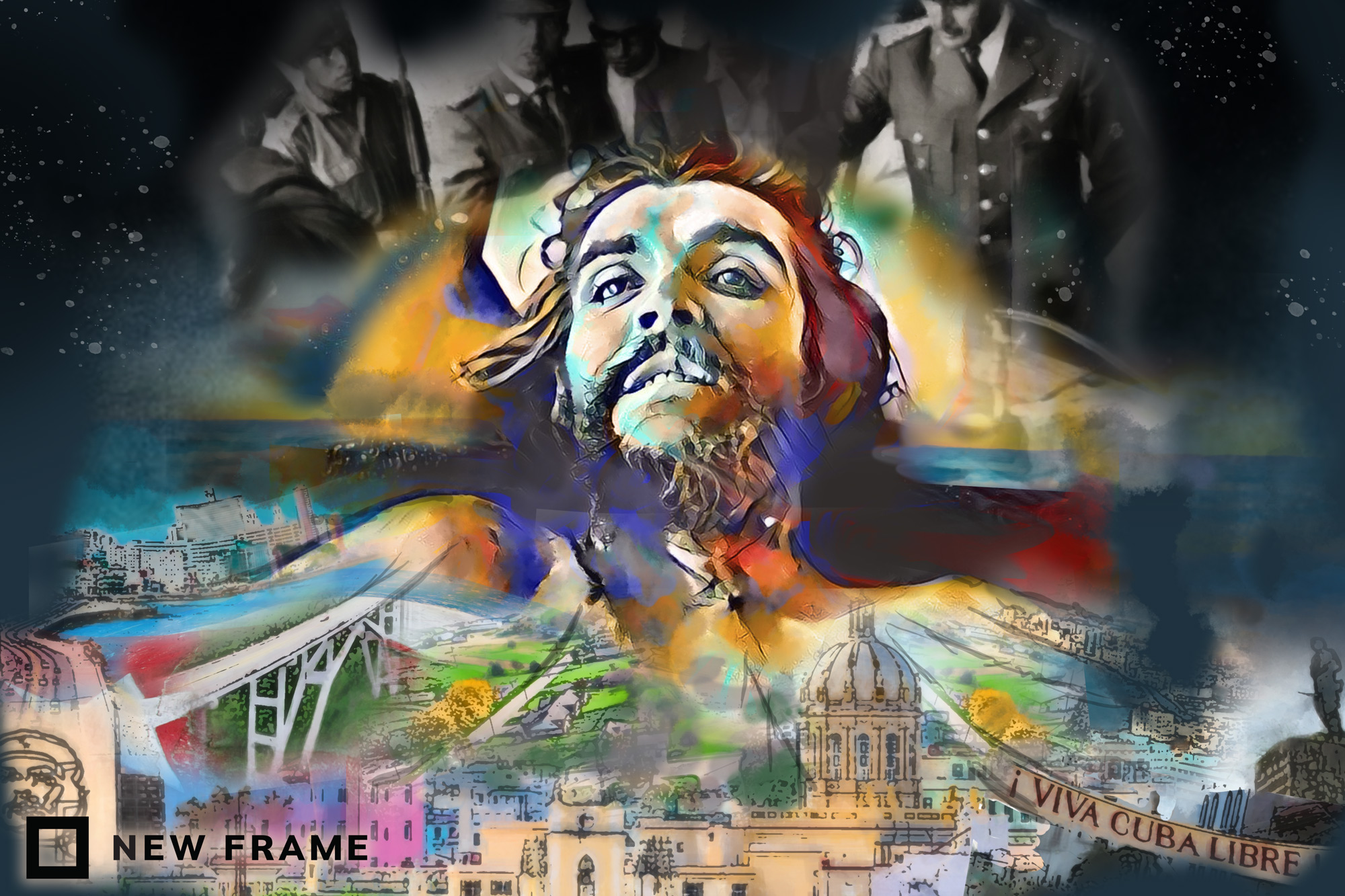Text Messages | The words of Che Guevara
His image may be instantly recognisable as the face of revolution but Ernesto ‘Che’ Guevara’s words are no less powerful, guided as they are by ‘great feelings of love’.
Author:
15 October 2020

For an image intended to prove that its subject was dead, defeated and of no further consequence, it is a failure. Seven men are gathered around a figure lying face upwards on a makeshift stretcher that is placed on top of a cement sink of sorts. Four of the men are in military uniform, two officers and two soldiers. In their midst are three men in plain clothes, one looking away.
The right half of a man with a camera, evidently taking a picture, is visible on the left of the frame. One of the officers has his right index finger on the chest of the dead man. The other, looking at the photographer on the left, has his right hand resting on the corpse’s hair.
The face of the dead man is unmistakable, its sculpted cheeks, moustache and beard known the world over at the time, October 1967, and ever since. His eyes are open, seeming still to hold that unwavering gaze that in life gave courage and hope to so many around the globe. He might have been dead, but immortality was now secure for Ernesto “Che” Guevara.
Related article:
The photograph is one of the most infamous ever taken, but its original purpose turned against its commissioners and its maker. No one familiar with Christian imagery can fail to notice the Christ-like nature of the dead subject. Indeed, as Jon Lee Anderson writes in his magnificent biography Che Guevara: A Revolutionary Life (Bantam Press, 1997), the nuns at the Vallegrande hospital thought the slain Guevara “resembled Jesus Christ, and local women clipped locks of his hair as keepsakes. To this day, they keep them as good-luck talismans and pray for his soul on the Day of the Dead”.
The revolutionary captured in battle and then executed in such a craven way is but one part of the history. Behind that and all the myth and legend that have accumulated around the most charismatic thinker and doer of later 20th-century revolution lies the observer, the teacher, the writer: Guevara in his own words, sent out to the world as a manual for guerrilla warfare, as pleas for a new kind of human being, as arguments for a galvanised socialism that can truly transform and as reflections of revolution in action.
Here are vignettes of those, from his writings.
“Moreover, it is necessary to demonstrate clearly to people the futility of maintaining the fight for social gains within the framework of civil debate. When the oppressive forces maintain themselves in power against the laws they themselves established, peace must be considered already broken.” (Guerrilla Warfare, The Authorised Edition, Ocean Press, 2006)
“What we must create is the man of the twenty-first century, although this is still a subjective aspiration, not yet systematised…
“By reacting against the man of the nineteenth century we have relapsed into the decadence of the twentieth century. It is not a very grave error, but we must overcome it lest we open a wide breach for revisionism.” (Socialism and Man in Cuba, Pathfinder Press, 1989)
Related article:
“At the risk of seeming ridiculous, let me say that the true revolutionary is guided by great feelings of love. It is impossible to think of a genuine revolutionary lacking this quality. Perhaps it is one of the great dramas of the leader that he must combine a passionate spirit with a cold intelligence and make painful decisions without flinching. Our vanguard revolutionaries must make an ideal of this love of the people, of the most sacred causes, and make it one and indivisible. They cannot descend, with small doses of daily affection, to the level where ordinary men put their love into practice.” (Socialism and Man in Cuba, Pathfinder Press, 1989)
“Revolutions, radical and accelerated social transformations, are made in specific circumstances. They rarely, if ever, emerge fully ripe, and not all their details can be scientifically foreseen. They are made from passion, from the improvisation of human beings in their struggle for social change, and they are never perfect. Our revolution was no exception. It committed errors, and some of these cost us dearly.” (Reminiscences of the Cuban Revolutionary War, Ocean Press, 2006)
The last words go to Anderson, from the last paragraph of his biography of Guevara.
“Left behind, in Vallegrande, is a graffiti scrawl in Spanish on the adobe wall of the public telephone office: ‘Che – Alive as they never wanted you to be.’ Perhaps more than any other, the statement best describes Che’s true legacy … He is immortal because others want him to be, as the solitary example of the New Man who once lived and dared others to follow.”


